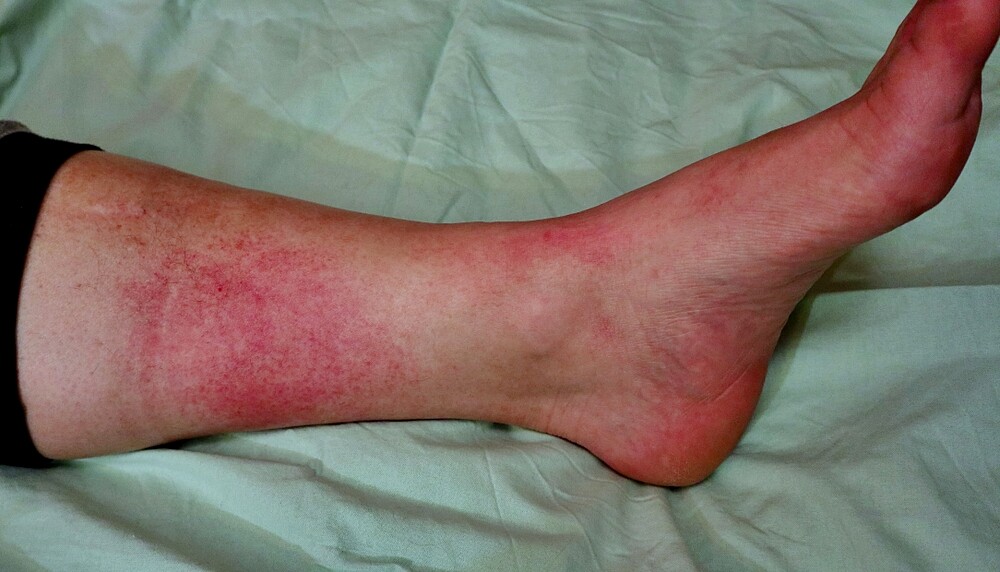Erysipelas is a bacterial infection of the skin. Here you will learn how to recognise erysipelas, how it develops and what can help.
What is an erysipelas?
Erysipelas is a non-infectious, locally limited infection of the skin caused by bacteria. The pathogens penetrate through tiny injuries (e.g. athlete’s foot) into deeper layers of the skin and cause inflammation there. Mostly the lower legs are affected, but theoretically the skin disease can develop everywhere. If diagnosed early, erysipelas can be easily treated with antibiotics.
What does the erysipelas look like?
The erysipelas usually spreads around the entry point of the bacteria (mostly streptococci, sometimes staphylococci) and looks like a rose blossom – hence its name. The affected skin has a sharply limited redness and is swollen. Some patients also have blisters or pustules.
Symptoms: This is how you recognize the skin disease
The erysipelas can be easily recognized by its visually striking shape. The following symptoms may occur:
- Redness
- Swelling
- Fever
- General feeling of illness
- Pustules / Blisters
- Pressure pain
- Overheating
- Swollen lymph nodes in surrounding areas
Treatment and complications: How to treat erysipelas
In general, the earlier the erysipelas is discovered, the easier it is to treat by administering antibiotics. However, early therapy is also important because the infection can spread in the body and cause, for example, blood poisoning or inflammation of the connective tissue (“phlegmon”).
Risk factors for erysipelas
Unfortunately, even after successful treatment, the symptoms can reappear after a few months – precisely because every small skin injury is a point of entry for bacteria. The pathogens have it particularly easy when the immune system is already weakened. This is often the case after a completed drug therapy. And: Diseases that damage the skin or that are treated by suppressing the immune system (e.g. diabetes) increase the risk of erysipelas.

